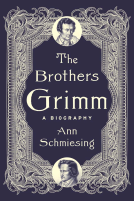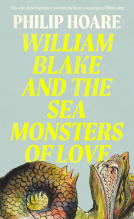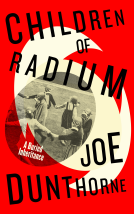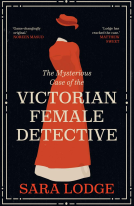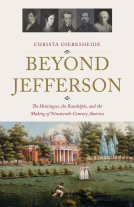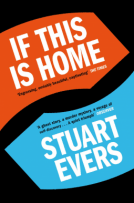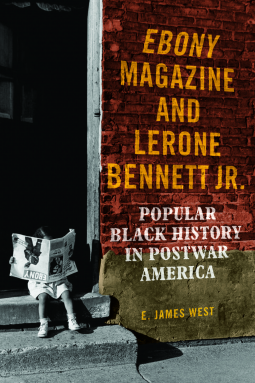
Ebony Magazine and Lerone Bennett Jr.
Popular Black History in Postwar America
by E. James West
This title was previously available on NetGalley and is now archived.
Send NetGalley books directly to your Kindle or Kindle app
1
To read on a Kindle or Kindle app, please add kindle@netgalley.com as an approved email address to receive files in your Amazon account. Click here for step-by-step instructions.
2
Also find your Kindle email address within your Amazon account, and enter it here.
Pub Date 31 Jan 2020 | Archive Date 9 Mar 2020
Talking about this book? Use #EbonyMagazineAndLeroneBennettJr #NetGalley. More hashtag tips!
Description
How Ebony educated African Americans about their own history
From its launch in 1945, Ebony magazine was politically and socially influential. However, the magazine also played an important role in educating millions of African Americans about their past.
Guided by the pen of Lerone Bennett Jr., the magazine’s senior editor and in-house historian, Ebony became a key voice in the popular black history revival that flourished after World War II. Its content helped push representations of the African American past from the margins to the center of the nation’s cultural and political imagination.
E. James West's fresh and fascinating exploration of Ebony’s political, social, and historical content illuminates the intellectual role of the iconic magazine and its contribution to African American scholarship. He also uncovers a paradox. Though Ebony provided Bennett with space to promote a militant reading of black history and protest, the magazine’s status as a consumer publication helped to mediate its representation of African American identity in both past and present.
Mixing biography, cultural history, and popular memory, West restores Ebony and Bennett to their rightful place in African American intellectual, commercial, and political history.
E. James West is a Leverhulme Early Career Fellow in American History at Northumbria University.
Advance Praise
"E. James West's book is the first major examination of Ebony as a forum for black historical discourse and the magazine's long-time executive editor Lerone Bennett Jr.'s multifaceted thought, work, and scholarship as a leading popular historian of the black past and vital contributor to the post-war black history movement. A well-researched and accessible study situated within the growing field of black intellectual history, Ebony Magazine and Lerone Bennett Jr. is a major contribution to our understanding of what West aptly calls 'popular black history.'"--Pero G. Dagbovie, author of Revisiting the Black Past: The Use and Misuse of African American history in the Twenty-First Century
Marketing Plan
-ARC mailing to national media
-Feature on Netgalley
-Social media campaign
-Email blast to in-house email lists
-ARC mailing to national media
-Feature on Netgalley
-Social media campaign
-Email blast to in-house email lists
Available Editions
| EDITION | Other Format |
| ISBN | 9780252084980 |
| PRICE | US$24.95 (USD) |
| PAGES | 208 |
Featured Reviews
 Reviewer 602942
Reviewer 602942
This compact monograph by E. James West offers an insightful, well-researched analysis of Ebony magazine as a popular “history book” in the 1960s, 1970s, and 1980s. Focusing primarily on Senior Editor Lerone Bennett Jr.’s contributions to the magazine, the author details the role that Ebony magazine played in the mainstreaming of African–American history over the course of the four decades following World War II, while at the same time catering to consumerism and a black bourgeoisie audience. The magazine’s desire to educate a burgeoning African American middle-class audience about black history, the author shows, did not always align with its commercial mission, which centered on presenting “the happier side of Negro life.” Yet, because the magazine’s owner gave Bennett substantial editorial freedom, the author demonstrates that it is overly simplistic and cynical to define Ebony as a commercial venture that played no role in laying the groundwork for the postwar African American history revival.
What is most exciting about this study is the author’s ability to provide a complex, multidirectional history of Ebony’s historical content, in which the magazine both sets historical trends in the way in which black history is told and responds to economic pressures, changing public perceptions, for example, of the Civil Rights movement, the Black Power movement, anti-colonial struggles in Africa, as well as the popularization and professionalization of African American studies. The multidirectional approach allows the author to provide a fascinating reassessment of Ebony as a living “history book” as well as offer powerful insights into the politics of memory, particularly in relation to the establishment of Martin Luther King Day and planning for the US bicentennial celebrations.
Although this book is an academic history, it is easily accessible to lay readers with a basic background in the history of the Civil Rights Movement and the Black Power movement. The style of writing is not pedantic, but rather highly engaging. This book deserves a wide readership, as it offers a window into the history of African American culture in the 1960s, 1970s, and 1980s that seldom presented in the classroom. While it would have been interesting if the author had provided more details on how potential advertisers reacted to Bennetts’ more radical interventions in the late 1960s and early 1970s and how their reaction contributed to the magazines conservative turn in the 1980s, most likely this information was unavailable. As the author notes in the introduction, Johnson Publishing Company, Ebony’s parent company, has largely kept its archives closed to the public. Consequently, West does not claim that his study is a comprehensive account of Ebony’s role as a black history text. But this compact monograph offers a tremendous early intervention for subsequent scholars to build upon.
A very precise look at the history of Ebony magazine and its impact on black culture and the representation of black history in the 20th century. I did find the writing to be a bit dry but the information was presented well and gives a much needed understanding of how black history and culture has been represented throughout American history.
 EB F, Educator
EB F, Educator
This was a fascinating book. I grew up with Ebony in my home, and learn more about Lerone Bennett, Jr. and the magazine's impact in expanding the conversation about black history made for an interesting read. What I found must interesting was that Mr. Bennett was not a trained historian. As a journalist, he was able to provide a specific interpretation of Black history and the experiences of Black people in this country that had a massive reach to popular audiences. While the book touches on the debate between Bennett interpreting historical event and historians doing the intellectual and public work that they do, I think the larger point is that Bennett reached people and empowered people to take pride in their history. That he was able to do this work through a magazine should make for interesting classroom discussion about the role of journalists in our democracy. I highly recommend this book. It is well-written and shares the story of a man who I am not sure very many Americans know, Lerone Bennett, Jr.
 Nicole C, Reviewer
Nicole C, Reviewer
With its glossy magazine spreads, Ebony once covered nearly every coffee table in Black homes. As a teenager growing up in the 90s, I flipped through Ebony’s pages at least once a month. My mother never missed a subscription. But I knew little of the magazine’s origins. E. James West fills in these gaps. Chock-full of little known details, Ebony Magazine and Lerone Bennett Jr. explores the senior editor and in-house historian’s impact on shaping historical moments. When ten Black writers responded to William Styron’s racist depiction of Nat Turner’s final days, they took to Ebony to do it. When mainstream media began depicting Stokely Carmichael as a bloodthirsty madman, Bennett featured the Civil Rights leader in his “Black Power” series, presenting a necessary counterbalance. West notes that Bennett likely coined the “Black Power” phrase, supported by Ebony’s Black Power series and Bennett’s routine use of the phrase in his writings and speeches. West does, at times, gloss over Ebony’s obvious objectification of women and erasure of key historical female figures. However, West presents compelling evidence for Bennet’s role in not only recording history, but also shaping it. With his commitment to Black liberation ideology, Bennett moved Ebony from mere lifestyle magazine to actual historiographical source.
 Clara C, Educator
Clara C, Educator
This is such an important read. The highly political Ebony magazine is famed for its stance on Black history and is renowned for its education of African Americans with regard to their history, their suppression, their oppression and their exploitation. E James West details African America history after World War 2 and does so in an engaging yet no frills way. He fills in the gaps and enlightens us regarding the lives ordinary African American citizens in that era's USA. I loved it and would loved to have been reading monthly instalments of Ebony Magazine on their original release dates.
Ebony magazine and Lerone Bennett Jr.
Popular Black History in Postwar America
By E. James West
I was given this book by the publisher in exchange for an honest review. Ebony magazine began as a style and celebrity magazine, aimed at the emerging middle-class Black community. However, led by Lerone Bennett Jr., they soon took on another role, that of a source for the analysis of Black History. Inspired by the Civil Rights Movement, the magazine began to; explore, report on, and champion the telling of a version of Black history, centred on the Black individual, their achievements, and oppressions. The author traces the development of the magazine’s historical focus. Its first historical analysis focused on, aspirational, black, historical, figures. However, inspired by the Black Civil Rights Movement, it soon broadened its focus to include the, historical, oppression of Black individuals. This book provides an interesting overview of the development of a magazine. In addition, this work provides a brilliant analysis of the development and teaching of Black History. It is a worthwhile read. I highly recommend this book.
 A_Place_In_The O, Media/Journalist
A_Place_In_The O, Media/Journalist
Books about magazines are often difficult - either you get a few chapters in and then go hunting for original copies, to read them instead. Or you get so bogged down in the facts and figures that you forget why you started reading it in the first place.
This, on the other hand, is fabulous, a journey through one of the most influential, and important, magazines of its era, drawing on both readers and writers' impressions and memories, at the same time as discussing precisely why the magazine mattered so much. And not only the magazine... senior editor Lerone Bennett Jr is as much a part of the story as the magazine he helmed, and his tale, too, is astonishing.
 Mandy J, Reviewer
Mandy J, Reviewer
A detailed and meticulously researched account of Ebony magazine, launched in 1945, and its role in informing, educating and representing the African-American community. The magazine had a long-lasting impact on black culture, politics and history and played a key role in community development under the charismatic and influential editorship of Lerone Bennett Jr. I learnt a great deal from this academic but overall accessible book. I found it a bit dry at times, for sure, but essentially it’s clearly written and tackles an important subject with clarity and insight. Essential reading for anyone interested in black history.


